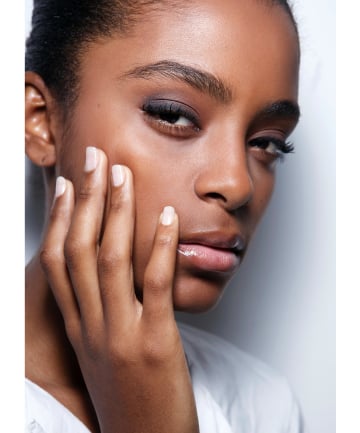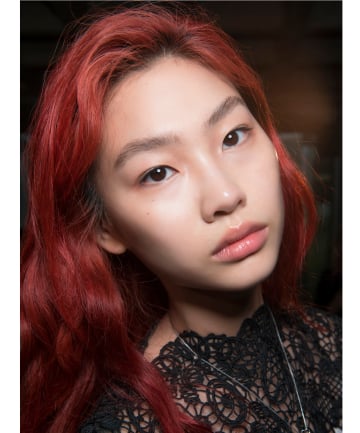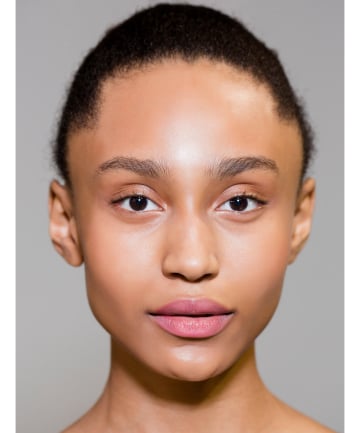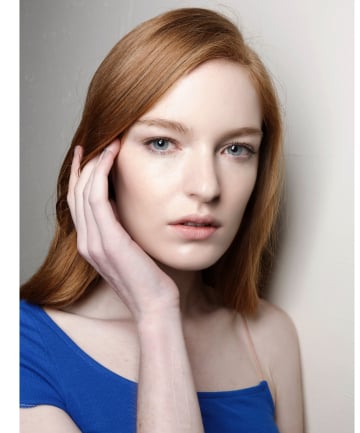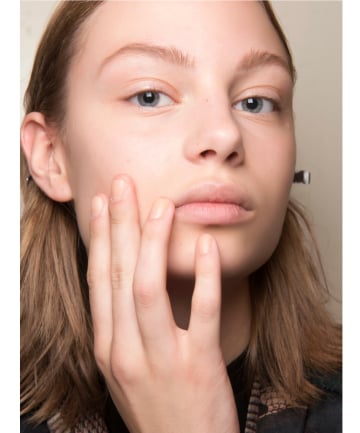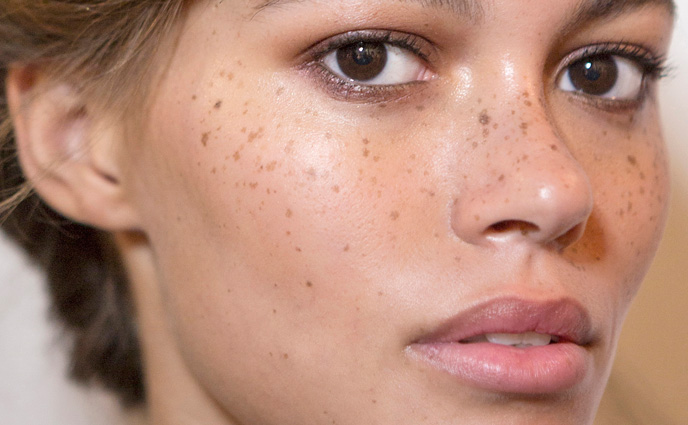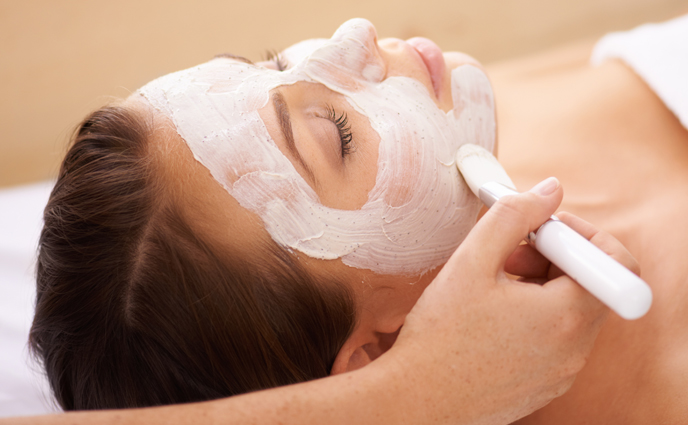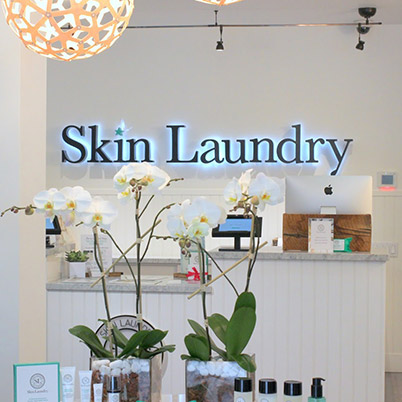From our everyday skin care routines, we're familiar with how skin's needs can change depending on the weather. Dr. Ava Shamban, Beverly Hills dermatologist and founder of SKINxFIVE, says a good esthetician will adjust their treatment depending on the climate. Warmer seasons bring out more oil-related skin care conditions along with blackheads and UV ray exposure concerns, while dehydration and dryness are concerns in the colder months, says Katherine Tomasso, national director of education for Yon-Ka Paris. To rebalance skin during seasonal changes, she suggests scheduling professional facial treatments at least four times a year. If you want to splurge, book facials once a month.
Sun exposure is also something to think about. Jones says that anyone planning to spend time in the sun or traveling to sunny climes should avoid chemical peels or aggressive exfoliation as they make skin more sensitive to the sun's rays. Facials focusing on hydration and plumping are safer options.
Image via Imaxtree
Sun exposure is also something to think about. Jones says that anyone planning to spend time in the sun or traveling to sunny climes should avoid chemical peels or aggressive exfoliation as they make skin more sensitive to the sun's rays. Facials focusing on hydration and plumping are safer options.
Image via Imaxtree
Read Reviews
Many of us spend ages poring over beauty product reviews to figure out which products are worth buying. Do the same with your facialist. Hewett says that it will make a huge difference in finding the best esthetician. Don't forget about asking friends or family for referrals.
Look for Specialized Estheticians
Want a facial that targets breakouts? Interested in facial massage? Carr says to look for someone who specializes in your area of concern for optimal results.
Think About Your Facialist's Skin Care Philosophy
One important thing the experts stressed was to find out your facialist's skin care philosophy and ensure that the treatment center is in line with your beauty ideals. There are many different kinds of centers, from spas to salons to medi-spas to dermatologist offices, says Jones. Some are focused on more natural, holistic approaches while others use clinical cosmeceutical grade ingredients and machines. Do you want a spa experience? Or do you prefer a more clinical space?
Find Out About the Products
You have a right to know what products and ingredients are going to be used in a facial, so don't be afraid to ask. Tomasso says that staff should be able to easily describe the main features, benefits and steps of every treatment on their menu of facial services.
Image via Imaxtree
Many of us spend ages poring over beauty product reviews to figure out which products are worth buying. Do the same with your facialist. Hewett says that it will make a huge difference in finding the best esthetician. Don't forget about asking friends or family for referrals.
Look for Specialized Estheticians
Want a facial that targets breakouts? Interested in facial massage? Carr says to look for someone who specializes in your area of concern for optimal results.
Think About Your Facialist's Skin Care Philosophy
One important thing the experts stressed was to find out your facialist's skin care philosophy and ensure that the treatment center is in line with your beauty ideals. There are many different kinds of centers, from spas to salons to medi-spas to dermatologist offices, says Jones. Some are focused on more natural, holistic approaches while others use clinical cosmeceutical grade ingredients and machines. Do you want a spa experience? Or do you prefer a more clinical space?
Find Out About the Products
You have a right to know what products and ingredients are going to be used in a facial, so don't be afraid to ask. Tomasso says that staff should be able to easily describe the main features, benefits and steps of every treatment on their menu of facial services.
Image via Imaxtree
Think of this like an interview. You get asked about your professional qualifications in job interviews and you should ask prospective estheticians for theirs. Lancer says it's important that the facial facility is linked with a medical facility as this ensures that there is a board-certified medical professional overseeing it. If you experience an allergic reaction, they will be able to handle it.
Most salons have strict policies about therapists and qualifications but Tomasso points out that a few states don't require an esthetic license to perform facial treatments. Besides having a license, it's essential to consider experience, any specializations and satisfied customers.
Image via Imaxtree
Most salons have strict policies about therapists and qualifications but Tomasso points out that a few states don't require an esthetic license to perform facial treatments. Besides having a license, it's essential to consider experience, any specializations and satisfied customers.
Image via Imaxtree
Some experts say that consultations aren't necessary because you'll have a chat about skin prior to your facial. Tomasso says most institutes build extra time into appointments for new clients. Newbies typically get an in-depth professional consultation that outlines the treatment course and highlights a customized home care regimen.
If you feel more comfortable with a separate consultation, don't be afraid to book one. Per Carr, most salons do offer consultations, so don't be afraid to take them up on the offer.
Image via Imaxtree
If you feel more comfortable with a separate consultation, don't be afraid to book one. Per Carr, most salons do offer consultations, so don't be afraid to take them up on the offer.
Image via Imaxtree
Anyone with sensitive skin is likely to be nervous about having a facial. Lancer stipulates that those with sensitive skin should only get facials at dermatology offices. They should also look for treatments that are specifically designed for sensitive skin. Jones says these procedures might follow the "less rule" to stop skin from reacting. This means using fewer products for less time, using less heat and applying less friction.
Hewett says experienced estheticians will be able to tell that skin is sensitive, but it's still important to make the facialist aware of allergies or special considerations. Mention if skin reacts negatively to certain ingredients or temperatures. Most treatments for sensitive skin will avoid using ingredients like very strong acids, alkaline products, artificial ingredients and fragrance, mineral oil and SD alcohols.
Image via Imaxtree
Hewett says experienced estheticians will be able to tell that skin is sensitive, but it's still important to make the facialist aware of allergies or special considerations. Mention if skin reacts negatively to certain ingredients or temperatures. Most treatments for sensitive skin will avoid using ingredients like very strong acids, alkaline products, artificial ingredients and fragrance, mineral oil and SD alcohols.
Image via Imaxtree


